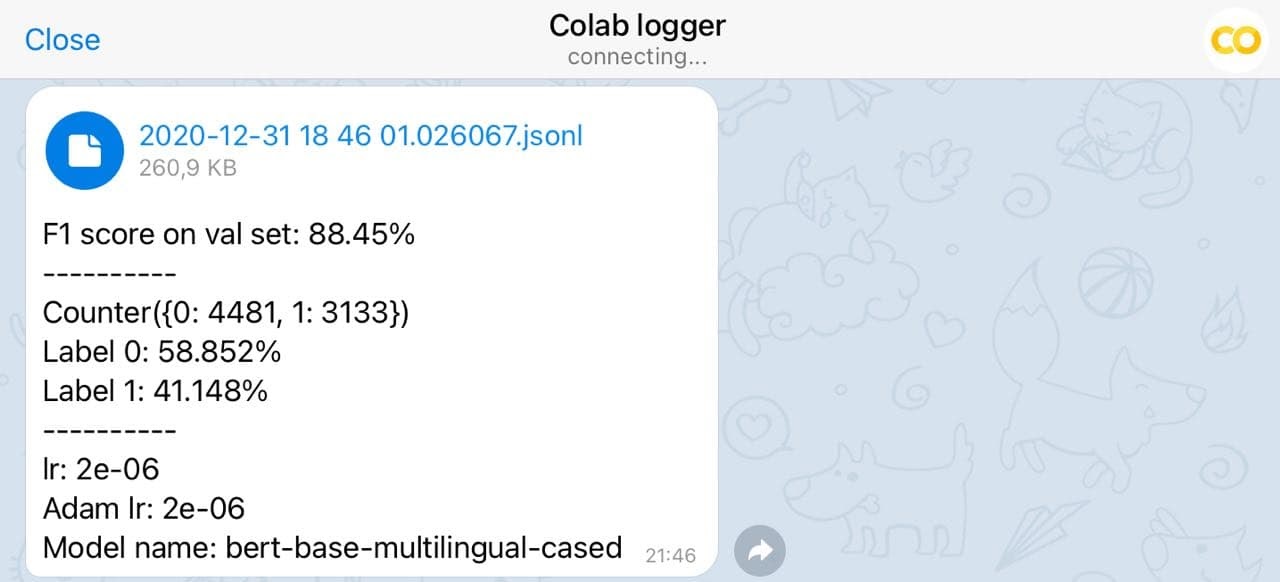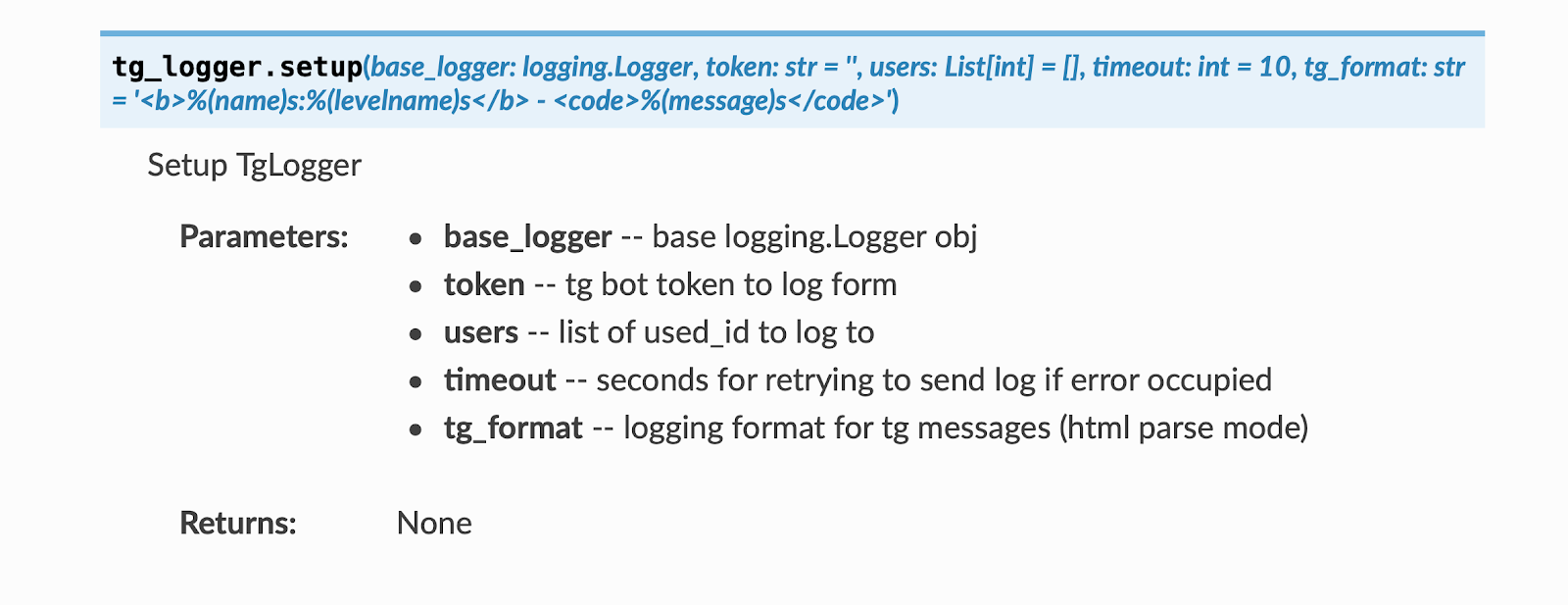The python logging module is a powerful development tool. It helps you track errors, monitor application performance, and even collect statistics about the use of your service. In this article I will tell you how you can expand the capabilities of this module and where does the telegram come from.

Intro
-, , , . , GPU (colab). , . , , runtime , , runtime , .

, - , , . - , , , .

(jupyter notebook) , , logging , , .
Logging.handlers
, , . , , , . , . , logging , StreamHandler. , , .
Tg-logger
, , . , .
, , , , @tg_logger_demo_bot.

:
( )
user_id ( @tg_logger_demo_bot
/id
)
pip.
pip install tg-logger
import logging
import tg_logger
# Telegram data
token = "1234567890:AAAAAAAAAAAAAAAAAAAAAAAAAAAAAAAAAAA"
users = [1111111111]
# Base logger
logger = logging.getLogger('foo')
logger.setLevel(logging.INFO)
# Logging bridge setup
tg_logger.setup(logger, token=token, users=users)
# Test
logger.info("Hello from tg_logger by otter18")
, .
# Logging bridge setup
tg_logger.setup(logger, token=token, users=users)
setup() logger, . , setup(). , , , .

TgFileLogger
It is also worth mentioning that I also added the function of sending files.
import tg_logger
# Telegram data
token = "1234567890:AAAAAAAAAAAAAAAAAAAAAAAAAAAAAAAAAAA"
users = [1111111111]
# TgFileLogger example
tg_files_logger = tg_logger.TgFileLogger(
token=token, # tg bot token
users=users, # list of user_id
timeout=10 # 10 seconds by default
)
file_name = "test.txt"
with open(file_name, 'w') as example_file:
example_file.write("Hello from tg_logger by otter18")
tg_files_logger.send(file_name, "Test file")

Outro
All source code is on github: github.com/otter18/tg_logger .
English documentation is available at Read the Docs .
The library is available for download via pip : pypi.org/project/tg-logger/ .